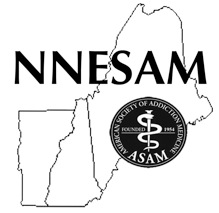Meet the Speakers

How a Population Health Approach Can Transform or Care of Substance Use Disorder
Be able to describe a population health approach to the disease of addiction. Identify ways to incorporate this approach into our practices with the results of improved quality of care and lower cost.
Jill Warrington MD, PhD is an Assistant Professor at the University of Vermont School of Medicine. Dr. Warrington has been contributing to the fields of laboratory research and medicine for 25 years. She earned her MD/PhD degree at Tufts University School of Medicine with her dissertation in Pharmacology. She then obtained her Anatomical and Clinical Pathology training at Duke University School of Medicine. In 2009, she joined the Larner School of Medicine at the University of Vermont where she serves as clinical faculty and focuses on substance use disorders. Dr. Warrington is passionate about the role that laboratories can play in optimizing clinical decision making and supporting clinical workflows. Her key areas of interest include driving appropriate utilization of testing services, integrating health analytics to inform care, and reducing administrative burden through automatization of unnecessary operational steps. UVM has a contract with Aspenti Health and as part of that contract, Dr. Warrington serves as Chief Medical Officer for Aspenti Health.

Stimulants: A 2020 Update
Understand the epidemiology of the recent surge in cocaine and methamphetamine use disorders. Apply current treatment approaches to cocaine and methamphetamine use disorders.
Richard A. Rawson, PhD psychologist, is a Research Professor at the Vermont Center for Behavior and Health at the University of Vermont. He is a Professor Emeritus at the UCLA Department of Psychiatry. Dr. Rawson has conducted numerous clinical trials on pharmacological and psychosocial/behavioral addiction treatments for the treatment of individuals with cocaine and methamphetamine disorders. He has led addiction research and training projects for the United Nations, the World Health Organization, and the U.S. State Department, exporting science- based knowledge to many parts of the world. Dr. Rawson has published 3 books, 45 book chapters, and over 250 peer-reviewed articles and has conducted over 1,000 workshops, paper presentations, and training sessions. He received his Ph.D. in experimental psychology from the University of Vermont.

DEA Update on the Opioid Crisis
Understand the DEA’s perspective on the opioid epidemic and emerging trends in use of illicit substances. Describe means of effective collaboration with the DEA.
Michael W. Wardrop is a 31-year veteran with the U.S. Drug Enforcement Administration and has served as the Resident Agent in Charge (RAC) of the Portland Maine Resident Office since May 2009. As the RAC, he is responsible for maintaining oversight and control over all DEA operational and administrative matters in the State of Maine related to the enforcement of the Controlled Substances Act, supervising a staff of personnel in Portland and Bangor comprised of Special Agents, Task Force Officers, Intelligence Research Analysts and Support Staff. Since arriving in Maine, RAC Wardrop has aggressively strengthened interagency cooperation, maintained oversight of large complex conspiracy investigations, and is the architect of Maine’s highly successful drug take back program, which created a sustainable in-state drug disposal solution. RAC Wardrop earned his Bachelor of Science degree in Criminal Justice and Certificate in Accounting from Northeastern University in Boston, MA.

Genetics of Addiction
Understand recent advances in neurobiology and genetics of addiction. Understand how these advances could lead to improving treatment of substance use disorders. Utilize this understanding in educating patients, families, community members and policy makers.
Vivek Kumar, PhD Geneticist, is a faculty member at the Jackson Laboratory where his laboratory uses the tools of genetics, neuroscience, computer science, and engineering to study the neural circuits in the brain whose misregulation leads to behavioral abnormalities including addiction. He is an active advocate for evidence- based treatment approaches to addiction as a chronic brain disease. He has given a TedXDirigo talk and published extensively on this topic. By understanding the biological reasons some people are at greater risk for addiction, Dr. Kumar hopes to find new ways to prevent people from becoming addicted and help those who are already addicted. He is a Trustee of a nonprofit addiction treatment facility on Mt. Desert Island. He earned his bachelor’s degree from the University of Chicago and his PhD from the University of California, San Diego. He has carried out postdoctoral research at Northwestern University and The University of Texas, Southwestern Medical Center before coming to the Jackson Lab in 2015

The Challenge of Moving from Trauma Informed Services to Trauma Responsive Services
Be able to define what it means to offer trauma informed, trauma responsive, and trauma specific care. Be able to describe the prevalence and process of trauma, as well as the Adverse Childhood Experiences (ACE) Study. Be able to explain the importance of having strategies to make an organizational values, policies, and procedures more trauma-responsive.
Theresa McCafferty,
Theresa McCafferty, PhD psychologist, DCCMHC, has particular expertise and experience working with survivors of trauma in outpatient and residential SUD treatment settings. She is certified by the National Board for Certified Counselors, Inc. as a clinical mental health counselor (CCMHC) and holds a New Hampshire clinical mental health counselor license (LCMHC.) Her particular expertise in trauma was recognized by the American Mental Health Counselor Association when she was awarded the status of Diplomate in Trauma Treatment in 2017 (DCCMHC) by the American Mental Health Counselor Association, the highest designation offered. Dr. McCafferty has conducted national trainings addressing trauma treatment, substance misuse treatment, and women and substance misuse. She is privileged by the New Hampshire Board of Mental Health Counseling to supervise candidates for licensure, and is privileged by New Hampshire Board of Licensing for Alcohol and Other Drug Use Professionals to provide ongoing mandatory clinical supervision to its licensees. Dr. McCafferty is committed to providing the highest quality psychological services to her clients. She values the clients’ individuality, their privacy, their family and the communities in which they live.

MAT in the Vermont Department of Corrections
Be able to articulate the philosophy/principals supporting the Vermont law mandating that DOC deliver MAT. Describe SAMHSA’s Recovery Oriented System of Care (ROSC) framework and Vermont’s use of the framework in developing its DOC MAT program. Become familiar with some of the challenges in developing a ROSC system within a Department of Correction, including the covid epidemic.
Annie Ramniceanu, LCMHC, LADC, became Vermont Department of Corrections Mental Health Systems Director in 2016. On July 1, 2018, Vermont’s Act 176 took effect–expanding access to addiction treatment for incarcerated people–including MAT. She has been at the forefront of developing the clinical system to answer this mandate. Ms. Ramniceanu has had a long career in behavioral and addiction care for DOC involved people. From 2000 to 2014, she worked for Spectrum Family and Youth Services, an organization dedicated to helping at-risk young people turn their lives around. She advanced from clinical supervisor for the counseling program, to Clinical Director, to Associate Executive Director in 2011, managing day-to-day operations of all programs. In 2014, Governor Shumlin appointed her Director of Pretrial Services for Vermont which she left in 2016 to take her current position. She is certified in alcohol and drug counseling by the International Credentialing and Reciprocity Consortium. She holds a BA in psychology from Amherst, a BA in sociology from Columbia, and an MA in counseling from the University of Vermont.

Kathleen Maurer, MD, MPH, MBA has recently become Vermont Medical Director for VitalCore Health Services which provides mental health and addiction treatment for the Vermont Department of Corrections. She is now at the forefront of developing Vermont DOC’s MAT system. From 2010 until 2020, she served as the Connecticut Department of Correction (DOC) Director of Health and Addiction Services and Medical Director. Prior to that, she was Assistant Medical Director at Correctional Managed Health Care, a division of the University of Connecticut Health Center, which contracted with the state corrections department for offender medical care. She worked on developing a system-wide medication assisted treatment program for the Connecticut DOC. Maurer earned her medical degree from Yale University School of Medicine, her MPH also from Yale and her MBA from the University of Connecticut. She is board-certified in internal medicine, occupational and environmental medicine, and addiction medicine. She recently was awarded the Coalition of Correctional Health Authorities national award for Leadership in Correctional Healthcare. She is an ASAM member.

Patterns of Drug-Induced Deaths in Northern New England
Understand the investigation of drug deaths in northern New England. Gain information about the trends and characteristics of recent drug deaths, including associations with the covid-19 pandemic. Utilize knowledge about circumstances surrounding drug death events in recent northern New England cases to improve prevention of overdose deaths.
Marcella Sorg, Phd is a medical and forensic anthropologist specializing in health policy, particularly as it concerns public health, public safety, and the investigation of death and injury. She directs the Rural Drug and Alcohol Research Program of UMaine’s Margaret Chase Smith Policy Center, which monitors epidemiological indicators of substance use disorder, particularly drug related deaths. Dr. Sorg is a board-certified forensic anthropologist serving state offices of chief medical examiners in Maine, New Hampshire, Vermont and Rhode Island in the recovery and examination of human remains.
